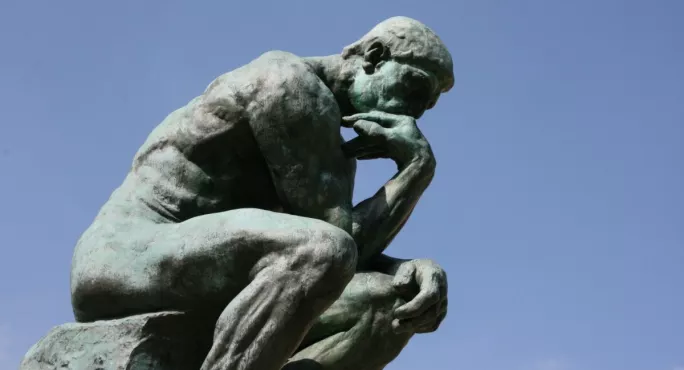
- Home
- ‘We need one grand educational theory for all’
‘We need one grand educational theory for all’

There is nothing so practical as a good theory, according to Kurt Lewin, one of the founding fathers of social psychology. I agree. But educational theory can all too easily seem neither practical nor helpful. As Crispin Weston helpfully reminded us last week, teachers can all too easily be confused. Worse still, they can become disenchanted, caught between the unsubtle slanging matches for which Twitter is well-known.
In response, let me posit a theory about theories
In education, there are many kinds of theories. There are grand ones which few would contest:
Education is an important route out of poverty.
The quality of teacher really matters.
But there are also grand ones which many contest, because they are only partially true:
Children really need powerful knowledge (but they also need to develop their values and tenacious mindsets, for example)
Children really need to develop character (but character is not cultivated in a vacuum, rather in the context of a subject or an extracurricular activity.)
There are general theories which sound true but sometimes are not:
Feedback is a good thing. (Corrective, specific, actionable kind feedback is; harsh, vague, untimely feedback is often counterproductive.)
Collaborative learning is beneficial. (The Education Endowment Foundation Toolkit suggests that this can enhance progress by five months for only moderate expense; poorly structured, unnecessarily repetitive, undifferentiated group work can be unhelpful.)
There are theories which sound intuitively plausible but which research shows not to be reliable. Two well-known examples of this are:
We all learn in different ways and lessons should be planned accordingly to match different learning styles. (Not true. We are certainly all different but what we share in common with other learners is probably more important to focus on. Specific labels - activist, reflector - can also reduce opportunities (“Bill can only learn things when he is being active” when it may be more helpful to provide Bill with a range of strategies.) Best case - teachers plan alternative methods of approaching all assignments and develop resourceful learners. Worst case - learning styles can provide excuses for not extending the repertoire of learners to cope with different contexts.)
Reducing class sizes is the key to improving quality. (Only partially true. As John Hattie has shown, reducing class size has a small impact and is a relatively expensive way of achieving it. Best case - parents are happier and teachers are able to spend more time helping those who need it most. They also start thinking more carefully about which activities are group size-sensitive. Worst case - class size becomes a proxy for not choosing the most helpful pedagogical approaches.)
It all goes wrong when small-scale theories are produced which are themselves myths masquerading as truths. Many of these turn out to be theorised versions of personal preferences (or prejudices) or long-engrained habits. My favourite ones from when I trained as teacher several decades ago are:
The teacher is always right.
Don’t smile before half-term if you want to stay in control of your class.
A unifying theory?
The best way of dealing with all of the theories I have listed so far is to look more carefully at the evidence. But even this comes with a caveat. For we are all capable of rooting out the evidence which best suits our cause.
What we need is a grand theory of education uniting thinkers and practitioners about the goals of education but allowing them different perspectives on its delivery. Some while ago, with a number of organisations such as the Association of School and College Leaders, RSA, Comino Foundation and the Royal Academy of Engineers, I submitted evidence to the Commons Education Select Committee about the purposes of education.
In our submission, we articulated a small number of grand theories about the purposes of education. We suggested education must:
- Work for all young people
- Prepare students for a lifetime of learning at the same time as seeing childhood and school as valuable in their own right
- See subject knowledge and character or capability development as being equally important
- Value vocational and academic routes equally
- Explicitly seek to cultivate happier children.
For sure, these exist at a general level.
They are statements of theory (education only works when it deals with the needs of all students) as well as being broad aspirations. Even if they are not quite to everyone’s preferred wording, could most of us agree to them as desirable outcomes of school?
If so, the real discussions can begin about how we realise these hoped-for expectations with the currency of such debates being the strength of evidence rather than the volume of the polemic
Professor Bill Lucas is director of the Centre for Real-World Learning at the University of Winchester and an international adviser to the Mitchell Institute. His most recent book, written with Ellen Spencer, is Developing Tenacity: teaching learners how to persevere in the face of difficulty.
Professor Lucas was responding to an article by Crispin Weston in last week’s Tes magazine
Register with Tes and you can read five free articles every month, plus you'll have access to our range of award-winning newsletters.
Keep reading for just £4.90 per month
You've reached your limit of free articles this month. Subscribe for £4.90 per month for three months and get:
- Unlimited access to all Tes magazine content
- Exclusive subscriber-only stories
- Award-winning email newsletters
You've reached your limit of free articles this month. Subscribe for £4.90 per month for three months and get:
- Unlimited access to all Tes magazine content
- Exclusive subscriber-only stories
- Award-winning email newsletters



